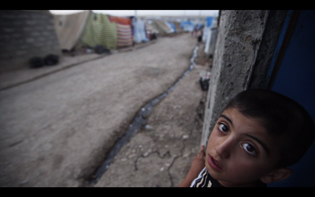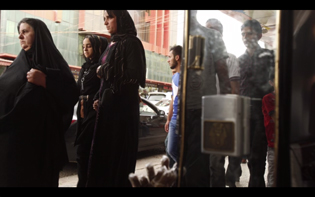By Mark Ellis

He was a courageous evangelist in a spiritually dark corner of Central Asia, who publicly and boldly proclaimed the Gospel. When he was assassinated by extremists, an Islamic group lavished the man’s killer with treatment due a star.
Masud* was a taxi driver and an intrepid evangelist, who shared the Gospel publicly in the city market. “Angry crowds would gather around him just like Jesus, but nobody laid a hand on him because it wasn’t his time,” notes John Harper, a Southern Baptist representative, in a report by Baptist Press.
But one day Masud was confronted by an extremist who shouted “Allahu Akbar!” The man proceeded to empty an AK-47 into Masud’s body in broad daylight. Masud died instantly of multiple wounds, according to Baptist Press.
“An Islamist group bought the shooter’s family the biggest house in the city and gave them cars, money — he was a hero,” Harper recounts.
Masud’s death left a void in the city’s small Christian community. Believers went into hiding and many kept their faith hidden, even from their own spouse. But there was a believer with the resolve to step into Masud’s footsteps — his ministry partner, Ahsan*.

Immediately Ahsan was targeted by the same men who killed Masud, but that didn’t stop him from sharing the Gospel. He began to pray that God would send him a new partner, someone who could stand with him as Masud had. His new partner became John Harper.
Harper and his wife Mary had spent the past seven years serving as Southern Baptist representatives in the same area. Harper’s family and Ahsan’s family became friends, bonded by their love for Jesus and determination to share His love.
The two men would often go “circuit riding,” traveling from village to village to visit small pockets of believers, encouraging and discipling them while sharing the Good News with anyone who would listen, according to Baptist Press.
“Ahsan has a voice like a bullhorn,” Harper says. He recalls sharing the Gospel in a small house packed with 25 curiosity seekers. Ahsan preached. “I felt like Paul and Silas; I was ready to get saved,” Harper recalls, laughing. “The power of the Holy Spirit was there. We saw two or three people from that village come to faith.”
While they were sharing, Harper’s wife, Mary, and Ahsan’s wife, Iman*, would share with the women. Late-afternoon visits were common and involved plenty of hot tea and deep conversation.
About a year after the two men began their partnership in the Gospel, Ahsan was arrested and thrown in jail. During the week he spent in prison, the Harpers visited Ahsan’s family every day, providing food, prayer, and encouragement.
When he was released, police told Ahsan he should return to Islam. Ahsan told them he had lived in darkness long enough. He also told John it wouldn’t be his last time behind bars.
In July 2011, Ahsan was arrested again. But this time, he was tortured, almost to the point of death. At first, no one even knew where Ahsan was held. But Harper was finally able to track him to a large prison in the capital.
“I made him a promise that I will stand with him, I will defend him, I will take care of his family while he is in prison,” Harper declares. “And I meant it.”
There are only a small number of known Christians in the city where the Harpers lived, and two of those are men Harper personally led to Christ.
But Harper faced an unexpected detour when he learned his wife Mary had come down with amyotrophic lateral sclerosis, commonly known as ALS or Lou Gehrig’s disease. Doctors told them most people survive only three to five years with the dreaded malady.
Due to his wife’s sudden and unexpected diagnosis, the International Mission Board ordered the Harpers to return to the United States immediately.
With their team’s help, the Harpers packed up their household in only seven days. They sold some of their personal effects; nearly half went to a refugee camp outside the city.
On the drive to the airport Harper wept over the unexpected turn of events. He thought about his friend, Ahsan, who was still in prison, and the promise he made to stand with him and care for his family.
The Harpers don’t know when or if they will see their friends in Central Asia again. They also wonder who will take their place. Mary laments the darkness that has a grip over the city’s women. Trapped in their homes by religious and cultural mores, many are uneducated, isolated and abused, viewed as little more than property, according to Baptist Press.
Sadly for these women, Suicide is a common escape. “The preferred method is to pour kerosene on themselves and then light it with a match,” Mary says. “Many survive for days before they die. I guess they feel they have no other option. They don’t have the hope of Christ.”
The Harpers returned to a century-old farmhouse in a rural part of Missouri. John wrestles with the fact that it’s difficult to make sense in this season of life. “We were in the beginning of the prime of our ministry. We knew the language. We knew the culture. I told Mary it’s not supposed to end this way…. But I know it’s not the end. The Lord has other plans for us.”
“I’m not going to say it’s easy…. I wish it was me instead of her.”
*Names have been changed for security reasons.
See the original story here




Comments are closed.